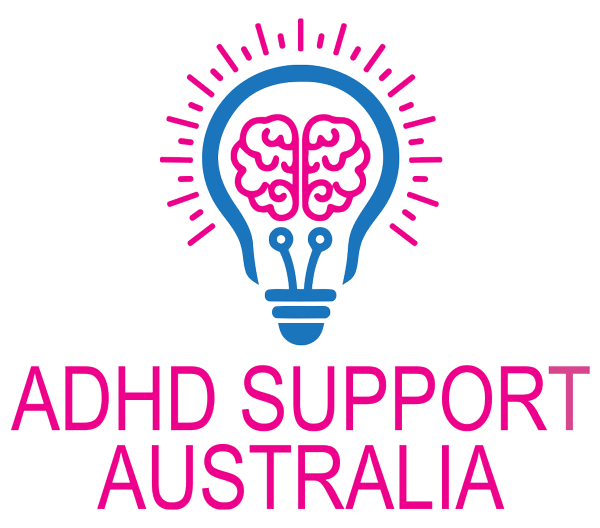
Coeliac Disease and ADHD – What’s the Connection?
It is generally accepted that undiagnosed Coeliac disease can cause a host of digestive problems but symptoms often also include cognitive impairment.
As ADHD is a cognitive disorder with symptoms characterized by poor memory and concentration it is more than fair to ask the question ‘Are ADHD symptoms and Coeliac Disease Connected?’
A small German study carried out in 2010, concluded that ‘Coeliac disease is markedly overrepresented among patients presenting with ADHD. A gluten-free diet significantly improved ADHD symptoms in patients with coeliac disease in this study. The results further suggest that coeliac disease should be included in the ADHD symptom checklist.’
It would seem a wise move then to investigate the possibility of coeliac disease if you have an ADHD diagnosis.
Let’s have a look at what Coeliac Disease actually is, its symptoms, possible long-term effects and treatments.
What is Coeliac Disease?
Coeliac Disease is an autoimmune disease whereby the body reacts when foods containing gluten are consumed.
When people with coeliac disease consume gluten their intestinal villi (finger-like projections which absorb nutrients into the blood from the gut), which are found in the small intestine, become damaged and no longer work efficiently meaning that nutrients are not absorbed properly.
This is a serious condition, which can cause a range of symptoms and lead to a host of serious health problems such as anaemia, osteoporosis, dementia or bowel cancer when older, if not addressed.
Some classic symptoms of coeliac disease that you may be familiar with include:
- Bloating
- Gas
- Abdominal spasms and/or pain
- Diarrhea and/or constipation
- Nausea and/or vomiting
Often people put these symptoms down to something they ate or just having a weak digestive system and don’t automatically consider it may be coeliac disease.
Other less well-known symptoms can include:
- Fatigue
- Headaches/migraines
- Iron deficiency anaemia/vitamin & mineral deficiencies
- Brain fog/impaired cognitive functioning
- Irritability/moodiness/anxiety and/or depression
- Recurrent mouth ulcers
- Recurrent infections
- Joint/bone pain
- Weight loss
- Failure to thrive and/or delayed puberty
- Skin rashes (dermatitis herpetiformis)
- Allergies

If coeliac disease has gone undiagnosed for many years symptoms may progress to include:
- Unexplained infertility
- Autoimmune diseases e.g. autoimmune thyroid condition or type 1 diabetes
- Early onset osteoporosis
- Liver disease
There is a genetic link to coeliac disease so if there is a family history, regardless of symptoms, you should get a test. In fact, a percentage of coeliacs are asymptomatic, meaning they have no obvious symptoms. However, no obvious symptoms does not mean there are no consequences and eating gluten is not silently doing its damage on the inside which will undoubtedly cause health issues at a later stage.
Most people think the main symptoms of coeliac disease are digestive symptoms, and they can definitely play a major role and be pretty unpleasant, but a less well-known symptom, that can be just as debilitating, is brain fog.
Brain fog often just makes you feel tired, with thoughts seeming to come slower than they should and completing tasks representing a challenge. Other effects of brain fog can include forgetfulness and difficulty concentrating.
Testing for Coeliac Disease
A simple blood test will determine whether antibodies to gluten are present.
If the blood test is positive, the next step to confirm whether true coeliac disease is present is a biopsy of the small intestine. In a coeliac who has been consuming gluten, the biopsy will show completely atrophied intestinal microvilli. In other words what should resemble shag pile now looks like the short pile of a Berber. If the villi are as they should be, the symptoms may be attributed to non-coeliac gluten sensitivity.
Although having a biopsy is a more invasive test and you may not feel it is necessary, a confirmed diagnosis of coeliac disease is important to ensure you are fully aware of the dangers to your health of continuing to consume any gluten at all.
There is currently no pharmaceutical cure for coeliac disease and therefore the only treatment is abiding by a strict 100% gluten-free diet.
It may take some time for the signs of gluten sensitivity to calm down but once it is out of your system, the difference in mood, energy, and digestion will be worthwhile.
A totally gluten free diet should allow healing of the small bowel, a resolution of symptoms and a reduction in the long-term risk of these complications. The villi should return to their normal state within one year.
Following a diagnosis of coeliac disease it is vital to ensure you work really hard to repair the damage gluten has caused to your gut, as a damaged gut is highly likely to cause a myriad of health problems if left unhealed.
There may likely be vitamin and mineral deficiencies caused by the undiagnosed coeliac disease due to malabsorption and you will therefore need to work with your doctor to ensure these are identified and rectified.
As mentioned above, the severity of symptoms varies between individuals, but there is no correlation between symptoms and bowel damage, so don’t be fooled into thinking that because your symptoms are mild you need not take the condition seriously. You still need to adhere to a strict gluten free diet to avoid the risk of future health problems.
Having coeliac disease can be an indication that things are not working correctly within the body and getting a diagnosis should be your cue to investigate the causes further.
What is Gluten?
Gluten is a protein found in wheat, barley, rye and oats.
Whilst it’s obvious that gluten is found in breads and pasta, you may not realize that it is used in many food products like ketchup and ice cream so you will need to check all food labels very carefully.
Although society in general is becoming more aware of gluten and those who are unable to consume it, and the supermarket shelves are now sporting a proliferation of gluten-free products do beware of replacing all your existing foods with gluten-free substitutes, which can often be full of sugar, refined oils and often higher in calories.
Why are more people being diagnosed with Coeliac disease or non-coeliac gluten sensitivity? Well, over the last 50 years the gluten content of wheat has been increased by up to 50% by engineering the wheat for greater commercial profitability. Unfortunately, because the structure of the protein has changed the digestive systems of many people are unable to break it down.
Is there a connection with ADHD?
So, it would appear that some of the problems that manifest in those with coeliac disease or non-coeliac gluten sensitivity, such as cognitive impairment, memory and concentration are similar to those in people diagnosed with ADHD.
Coeliac disease is a topic close to my heart as my daughter suffered with many of the symptoms of coeliac disease listed above prior to her diagnosis. Unfortunately I didn’t know much about coeliac disease back then and none of the doctors that we saw, until she was 12, ever suggested it might be the cause of her problems. She also has a diagnosis of inattentive ADHD. Being undiagnosed for so long resulted in a great deal of damage to her gut, which took quite some time to heal. So, if you think there is any chance your symptoms are gluten-related – please see your doctor and get a blood test immediately.
Association of Attention-Deficit/Hyperactivity Disorder and Celiac Disease: A Brief Report
The author, Vivian Dunstan, is Founder & CEO of ADHD Support Australia ADDCA trained ADHD Coach, Parent Coach & Facilitator of Parenting Children with ADHD – a 6-week online course, Certified Tech Addiction & Digital Health Educator (NIDHW) and Facilitator of the 6-week online Digital Parenting Program, Certified PEERS Social Skills for Teens & Young Adults coach and program facilitator, Certified NeuroACT provider & course facilitator, non-practicing teacher, parent of a young adult with ADHD and has ADHD herself.





